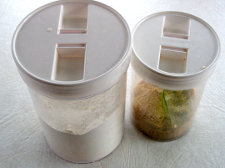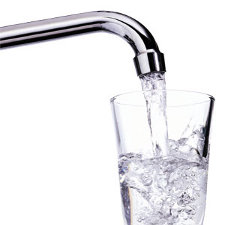
Mickey Mantle once said, “If I had known I was going to live this long, I would have taken better care of myself.”
The process of aging starts when we are born and there is no way to escape it. However, there are ways to delay the aging process and maintain a healthy and energetic life. Eating well and finding foods that reduce the risk of heart disease, cancer, osteoporosis, diabetes, and support energy for daily life are crucial.
If you have looked around any gym lately, you will notice that the many of people working out are over 40 years old. The majority of this group are part of the “baby boomers” generation. Boomers are very interested in anti-aging and increasing their longevity. However, exercise is great but not enough by itself. Without proper nutrition intake, its affects can be minimal. It is never too late to start, as I always like to say, “Better late then never.”
Books and magazines like to overcomplicate nutrition. The simpler you keep it, the easier it is going to be to stick with. This is a change that you want to keep for the rest of your life. As I have discussed previously in my last article, “10 Great Exercises for Men and Women Over 40,” as you age your metabolism slows down.
Your Body Is a Furnace
 I want you to start thinking of your body as a furnace. You need to keep the fire going throughout the day so it is continuously burning wood. If you put too much wood in, the fire will stop burning because there is too much. The same is true with food, especially when you age, but your body will just store it as fat. It is important to focus on eating 5 to 6 small meals a day.
I want you to start thinking of your body as a furnace. You need to keep the fire going throughout the day so it is continuously burning wood. If you put too much wood in, the fire will stop burning because there is too much. The same is true with food, especially when you age, but your body will just store it as fat. It is important to focus on eating 5 to 6 small meals a day.
As your body ages it wants to start slowing down so you need to trick it into staying fired up. This is vitally important when you are trying to obtain or maintain a healthy weight and are over 40 years old. You will find that your energy level will stay high throughout the whole day.
You burn fewer calories than you did in your twenties. Now you need to focus on meals that contain small portions but are nutrient dense and are health protective foods. Since your meals will be smaller, you want to find foods that are high in fiber, along with protein so that you are satisfied for a longer period of time.
The trick to staying on track is to pick a meal plan that works with your lifestyle. Also, try to have a complex carbohydrate and a protein source at every meal. Read on to find some great examples.
Get Rid of High Fats and Sugars
 At this time in our lives, our bodies tend to gain fat around the midsection. Gaining weight in the midsection is dangerous because it can lead to heart disease and diabetes. So how do we stop this from happening?
At this time in our lives, our bodies tend to gain fat around the midsection. Gaining weight in the midsection is dangerous because it can lead to heart disease and diabetes. So how do we stop this from happening?
Surveys conducted by the USDA say that the average American eats over twenty teaspoons of added sugar per day. “Added sugar” means sugars that aren’t naturally occurring in foods, like those in milk and fruit. While this statistic itself is alarming, consider that these are based on surveys alone, and real numbers could be significantly higher.
Instead of white sugar, look for foods that are sweetened naturally. Aside from that, however, it’s wise to cut your consumption of sweets altogether, opting instead for fruits and the occasional treat. Please stay away from artificial sugars, too.
Take out the high calorie, high sugar, and overly-processed foods. Now is the time to replace them with nutrient-dense fats like olive oils, nuts, flax seed oil, almond butter, fish oil, and avocados. All of these foods have wonderful antioxidants and an array of vitamins. Be careful to only eat a little, because too much of even these good foods can cause you to gain weight.
Why Carbohydrates Are Important
Carbohydrates are important, but I want to clarify that you need to choose complex carbohydrates. This is because they have long chains of sugar molecules. You can think of them as a time-release capsule of energy. They slowly inject energy into your system so that your body is fueled over a period of time.
Complex carbohydrates are easily found in natural and unprocessed foods. Some examples are brown rice, oatmeal, sweet potatoes, and whole wheat bread. These types of foods are also going to have wonderful benefits for your digestive system and mental health. If you are buying these items from a store you want them to have the least number of ingredients possible.
Make sure you can pronounce the ingredients as well. Your body does not recognize many of the additives in food and automatically stores them as fat because it does not know what else to do with them.
Do Not Forget to Drink Up!
 One of the healthiest things you can do for your body is to drink water. As soon as you get out of bed, you should drink a glass of water. This helps your body wake up and hydrates you from the night of sleep.
One of the healthiest things you can do for your body is to drink water. As soon as you get out of bed, you should drink a glass of water. This helps your body wake up and hydrates you from the night of sleep.
Water is our body’s principle chemical component and makes up 60 percent of our body weight. Every system in our bodies depends on water, making it vital for good health. Lack of water can lead to dehydration and can drain your energy leaving you tired. It also helps flush toxins, relieve back pain and dissipate headaches. Aim to drink 6 – 10 glasses of water each day.
The Power of Protein
Protein should be an important part of each meal, whether it be fish, lean meat, or a vegetable protein. Protein will help fight muscle loss and help build and repair muscles after exercise.
This is because muscles are built out of amino acids. While our bodies can produce some amino acids, there are 8 essential amino acids it cannot make. Therefore, we must get them from foods. Great options are wild salmon, almonds, peanuts, lean chicken, and eggs. Protein also helps you feel full and satisfied after meals.
Should You Supplement?
As you get older, your stomach absorbs less nutrients. The reason this happens is because as you age your stomach secretes less hydrochloric acid, which can reduce the absorption amount of calcium and other vital nutrients.
Calcium is very important for bone health, and as we age we tend to lose bone density. Now is the time to invest in your bone health — and don’t forget to do that weight bearing exercise!
Although most physicians recommend taking some sort of vitamin supplement at the age of 40, you should always consult with your health care provider before taking any supplements because high doses of iron and other ingredients in supplements can be lethal.
Putting It All Together
It is better to start late than never at all. Eating properly can help boost your energy, prevent health conditions, and help you feel and look better overall. The best present you can give yourself when you turn 40 is to invest in your body.
Focusing on 5 to 6 small meals each day and drinking lots of water are small steps you can take towards making healthy lifestyle changes. It’s important to really be aware of what you are eating. Make sure the foods that you eat are not processed and are nutrient dense.
Now is the time to make every bite count!